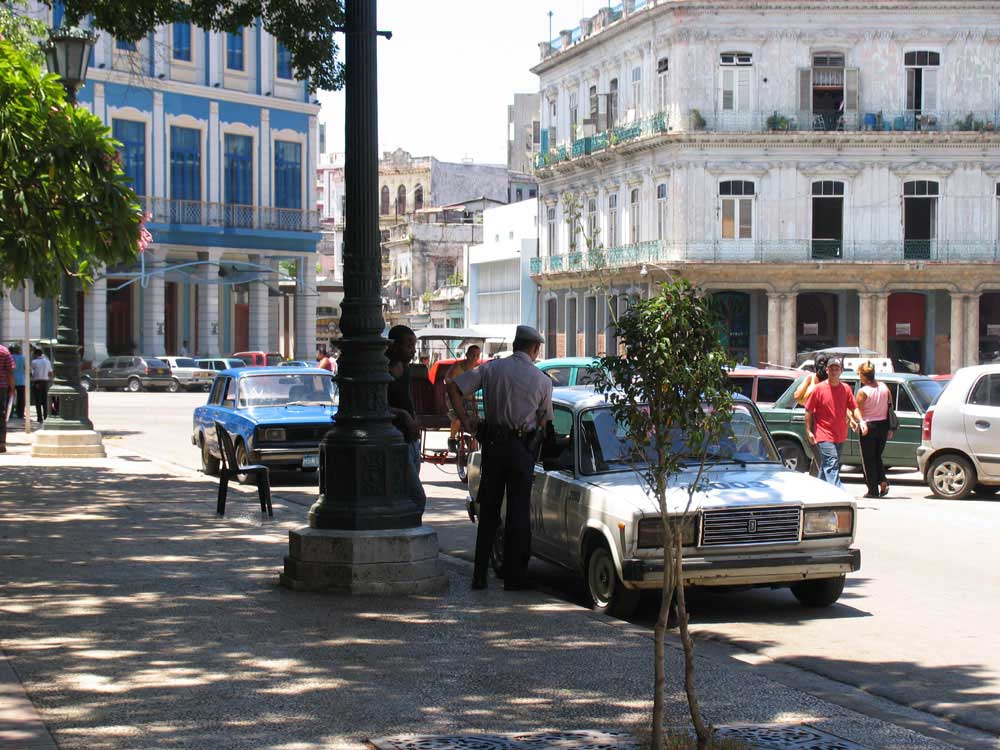Perhaps the most common sight in Cuba to emerge with the rise of tourism and the dramatic augmentation in the number of Cuba’s police and security forces is the constant stopping of young Black men on the street—in broad daylight, for no apparent reason, on the assumption that they were “naturally inclined” to criminal behavior and black market activity or simply needed to be kept under control [bajo control] or in place [en su lugar]. Although it is illegal to photograph any police detention and more than once I was warned by frightened bystanders (both loyalists and despisers of the regime), I managed to capture a typical example of this one morning in the summer of 2004. On my way to and from Cuba’s National Archive from 1996-1997, I had typically passed at least three to five identical searches of young Black males by cops daily. Each time, the cop stopped the victim who was walking by (often by flagging him down from a block away), check his identification card, search his bag or backpack and depending on his “attitude” toward authority, fine him, detain him or send him on his way. When I taught six-week to three-month-long courses at Bates College and Yale for undergraduates from 2001 to 2005, my own African American students were stopped so often that analysis of the inherent racism police expressed to them by way of explanation became a constant topic of class discussion and, in the case of one Yale student, the subject of his undergraduate honors thesis. The fact that most police in Havana are recruited from the eastern province of Oriente or its capital Santiago, and are notably nonwhite only adds to the state’s exploitation of racial division, regional resentments and anti-blackness for its own empowement: hated for repressing those with whom they share a common ancestry, these cops most often identify as mestizos: rarely used in Western Cuba, the term implies a predominance of indigenous rather than African racial mixing with Europeans. As such, its use affirms a denial of Blackness for its alleged inferiority and a celebration of ties to a native population that simply did not survive the Spanish Conquest (and therefore does not exist to any degree). Thus, as my students often argued, by ordering nonwhite cops to harass and intimidate Black Cubans on suspicion of criminal motives, the Communist state reproduces the same system on which the Spanish Colonial state also relied when it used free people of color in armed militias to surveil and repress the enslaved. Whiteness as an ideology and a system of power remains.
